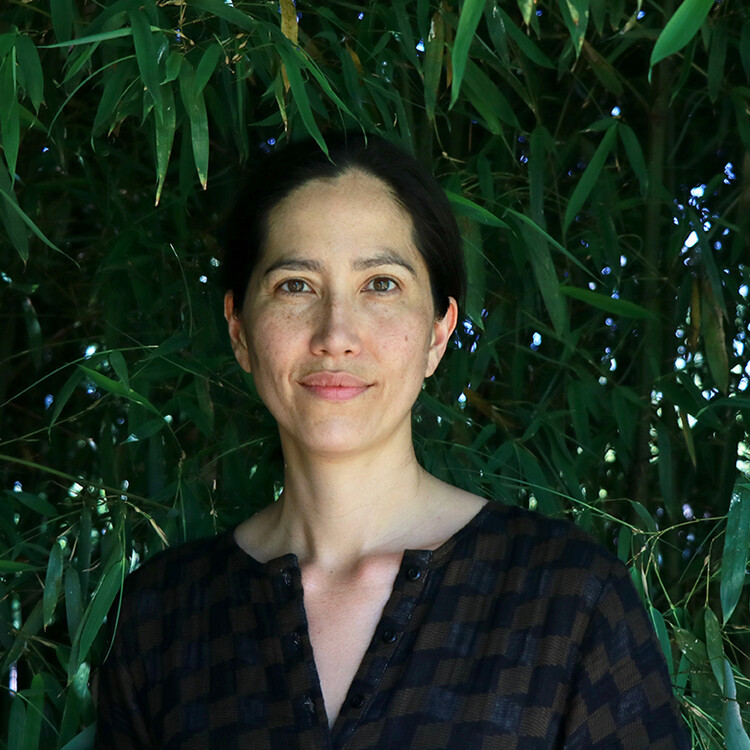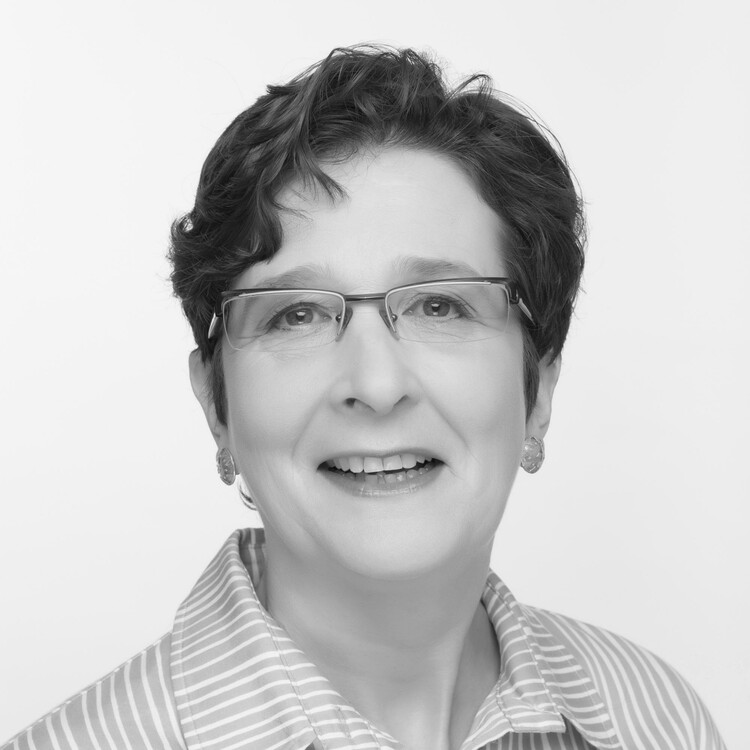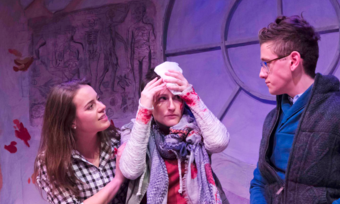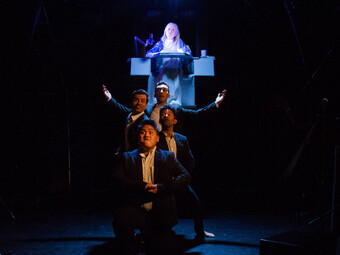Tow Foundation Playwright-in-Residence
Frances Ya-Chu Cowhig
This week on HowlRound, we’re looking at the Tow Foundation’s Playwrights-in-Residence. In this series, we look at where they are in their residency, what home is, and where they hope to be in the future.
What are you working on during your residency?
Two plays, one completely new that is being developed through The Writer's Room, a two year commissioning and workshop process facilitated by Ars Nova and Manhattan Theatre Club, and a play that I have been working on for four years, The World of Extreme Happiness, which was produced by the National Theatre in London last year and is having a world premiere co-production at the Goodman Theatre and Manhattan Theatre Club this season. The show ended its Goodman run in October, so now I have a few months to work on the play some more before going into another full rehearsal process for the MTC transfer. I have learned through experience that talking about a work before it’s drafted is the best way to hijack my creative process, so I won’t say what the new play is about, except that it is inspired by a paragraph I read in Iris Chang's book The Chinese in America. It made my brain explode and is—at least formally—a huge departure, as it takes place in one location, happens over one night, and only has three scenes. Any one of these formal components would be completely new territory to me, and I'm finding it invigorating to challenge my dramatic imagination in a new way.
How do you define home as a playwright? How important is it to have a place you call your “artistic home?”
Home for me as a playwright has always been more about relationships with individual producers and artistic collaborators than specific institutions, in part because people change jobs frequently and institutional identities are always evolving. My artistic home lives in the connections I have with creative collaborators—actors, directors, designers, and dramaturgs—and the extended episodic conversations and collaborations we have over many years, which deepen and broaden over the course of multiple collaborations. The producing institution is very important in that it provides, shapes, and funds opportunities for communities of artists to have time to come together and create. With another economic model this wouldn’t have to be so important, but under capitalism it’s essential.
I don’t think it’s important to have a singular artistic home, which in any case would be tricky for my work, as while I am loyal to a certain set of ideas and values, I am not loyal to a singular aesthetic, narrative structure, form of storytelling, ethnicity of actor or way of producing work. For me it’s about finding the right home or set of homes for individual projects, developing relationships with a wide range of producers who want to read my work and see if they can give it an artistic home, and having a roving band of creative collaborators that I can work with over and over—which is a kind of loose version of the “artistic company” model of playmaking that is rapidly disappearing.
What are your aspirations as a playwright? When you imagine yourself ten years from now, where are you and what are you doing?
I have always been interested in finding ways of bringing marginalized stories to the mainstream and finding ways to merge the two vastly different, and mostly separate streams of theatermaking that are going on—physical and text-based theater. I am interested in huge epic devastating stories, but also in buoyant, hilarious adventures that appeal to diverse, intergenerational audiences. I am a huge fan of what The Curious Incident of the Dog in the Night-Time accomplishes theatrically because it manages to show a point-of-view that I’ve never experienced before in a theater and do so in a way that is terrifying, funny, and heartbreaking.
Plays that whole families can go to and enjoy for different reasons—work that is often full of metaphor and allegory but also really riveting plot and characters—really appeals to me, and is a direction I would like to develop in the next decade. I hope that by then I will be holding down a tenure-track university job where I can teach writing to an economically diverse group of students, at a place that values my professional work and supports—in the form of time and resources—my playwriting work, which I hope will deepen in terms of how specifically I use language and imagine characters, and expand, in terms of the worlds and forms of storytelling I explore. I hope part of that involves working with auteur directors like Marianne Elliot and Julie Taymor on some massive play full of talking animals on strange adventures that appeals to intergenerational audiences and shows us the world from a fresh point of view and is as funny as it is horrifying and illuminating.









Comments
The article is just the start of the conversation—we want to know what you think about this subject, too! HowlRound is a space for knowledge-sharing, and we welcome spirited, thoughtful, and on-topic dialogue. Find our full comments policy here